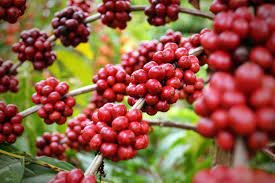Robusta coffee harvesting in Brazil, the world’s second-largest producer, is progressing at a sluggish pace, as reported by the Cepea/Esalq research centre, which is affiliated with the University of Sao Paulo. According to a recent report from the centre, approximately 10-15% of the crop has been harvested in Espirito Santo, the main robusta-producing state in Brazil. This update brings some relief to roasters who have been eagerly awaiting the progress of the harvest.
Brazil plays a crucial role in the global coffee market, and its harvesting activities have a significant impact on coffee prices and availability worldwide. The country is renowned for its production of both Arabica and Robusta coffee beans. While Arabica coffee is typically associated with high quality and a more delicate flavor profile, Robusta coffee is known for its higher caffeine content and stronger taste. Robusta beans are often used in blends and instant coffee production.
The slow pace of the Robusta coffee harvest in Espirito Santo has caught the attention of market participants, as it can have implications for the coffee industry as a whole. The delay in harvesting can potentially lead to supply shortages and impact prices, affecting not only roasters but also consumers around the globe.
The factors contributing to the slow pace of harvesting can vary. Weather conditions, such as excessive rainfall or drought, can significantly influence the maturation and readiness of the coffee cherries for harvesting. Additionally, labor shortages or logistical challenges can also hinder the progress of the harvest. It is essential to monitor these factors closely to gauge the potential impact on the coffee market.
The Cepea/Esalq research centre regularly provides insights and updates on the agricultural sector, including coffee production, to keep stakeholders informed. Their reports are highly regarded for their accuracy and credibility, making them a valuable resource for industry professionals, investors, and coffee enthusiasts alike.
While the current progress of the Robusta coffee harvest in Brazil may be slower than anticipated, it is important to note that harvesting is a dynamic process that can vary across regions and farms. The pace can accelerate as the season progresses, especially if weather conditions become more favorable, and farmers mobilize additional labor to expedite the process.
For roasters, the news of the ongoing harvest is crucial, as it provides insights into the future availability and pricing of Robusta coffee. This information allows them to make informed decisions about sourcing and production planning. Moreover, it enables them to manage their inventory and ensure a steady supply of coffee for their customers.
The current Robusta coffee harvest in Brazil is progressing slowly in the main producing state of Espirito Santo. This update from the Cepea/Esalq research centre serves as a significant development for roasters who closely monitor coffee supply and pricing. Factors such as weather conditions and labor availability can impact the pace of the harvest, leading to potential implications for the global coffee market. It is crucial for stakeholders to stay informed about the progress of the harvest to make informed decisions and navigate the coffee industry effectively.


